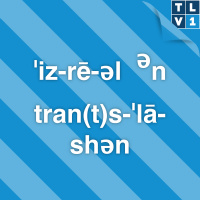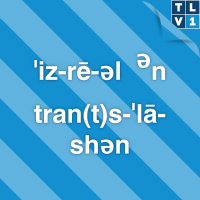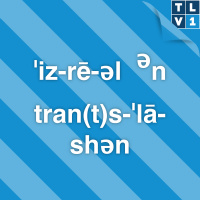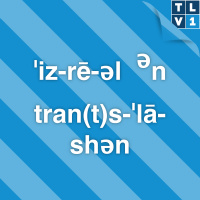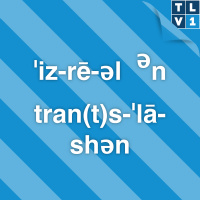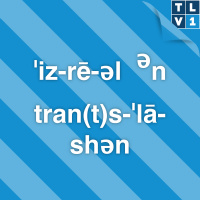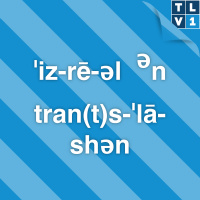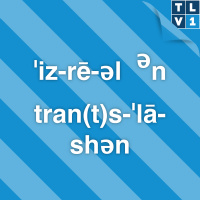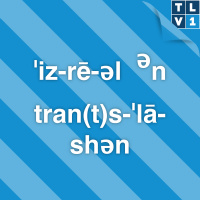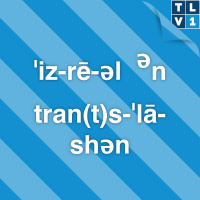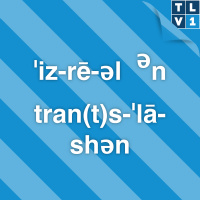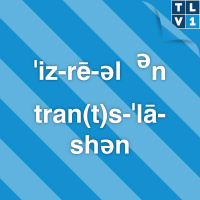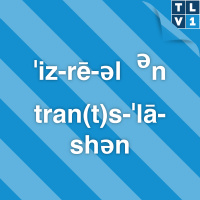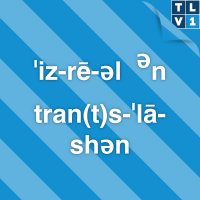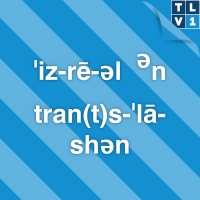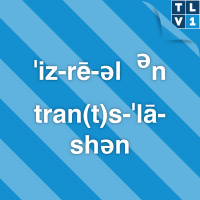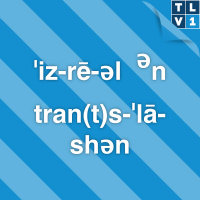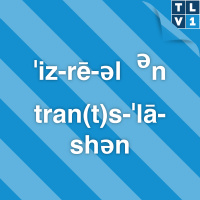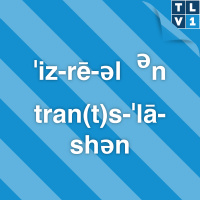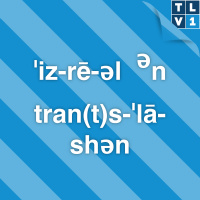Synopsis
Exploring Israeli literature in English translation. Host Marcela Sulak takes you through Israels literary countryside, cityscapes, and psychological terrain, and the lives of the people who create it.
Episodes
-
There's No Place Like Home: Eshkol Nevo's "Homesick"
05/07/2017 Duration: 08minEshkol Nevo’s first novel, Homesick, is the engrossing, interwoven story of an apartment community, told from about 8 different first-person perspectives, and a third-person omniscient narrator, as well. The novel was awarded the Book Publishers Association Gold Prize (2005), among other prizes. it was translated by Sondra Silverstein and published in English in 2009. Host Marcela Sulak reads two passages from Homesick on today’s episode. Text: Homesick by Nevo Eshkol. Translated by Sondra Silverstein. Vintage Books,2009 Music: The Night Brings The Morning by The Bridge Project Nikriz Peşrev by Derya Türkan
-
History Made Modern: A Folktale from S.Y. Agnon
28/06/2017 Duration: 07minCelebrated Israeli author and Nobel Prize laureate S.Y. Agnon wrote his first novella And the Crooked Shall be Made Straight over 100 years ago. It has been translated for the first time into English by Michael Kramer and is newly published with Toby Press. Host Marcela Sulak reads the opening of this folktale that still bears lessons for us in the modern era. Text: And the Crooked Shall be Made Straight, by S. Y. Agnon, translated by Michael Kramer. Toby Press, 2017. Music: Yiddish Hora - A Heymish Freylekhs - The Chicago Klezmer Ensemble Sha, Sha, Di Shviger Kumt - The Chicago Klezmer Ensemble
-
A Fairy Tale: Emile Habibi’s "Saraya, The Ogre’s Daughter"
21/06/2017 Duration: 10minPart memoir, part fairy tale, and part political commentary and history, Emile Habibi’s Saraya, The Ogre’s Daughter: A Palestinian Fairy Tale opens on a moonless night in the summer of 1983, on a boulder off the shore of what was once al-Zeeb, a Palestinian village north of Akko. The narrator glimpses a mysterious female figure who saves him from death, and in the story that follows, he tries to discover who she is. He calls her 'Saraya,' the flesh-and-blood beloved of his childhood, the daughter his uncle Ibrahim adopted, who shares a name with a fairy tale heroine who was captured by an ogre. Host Marcela Sulak reads three excerpts from Habibi's novel on today's episode. Text: Saraya, The Ogre’s Daughter: A Palestinian Fairy Tale, by Emile Habibi. Translated by Peter Theroux. Ibis Editions, 2006. Music: Philip Glass - Island Philip Glass - Closing Philip Glass - Metamorphosis Two
-
Power, Politics, and Poetry from Meir Wieseltier
14/06/2017 Duration: 07minIn this week's episode, host Marcela Sulak reads two pieces from award-winning poet Meir Wieseltier's collection The Flower of Anarchy. His works in this collection, translated by Shirley Kaufman with the author, cover 40 years of history and yet maintain their power over time. Shaped by his early experiences of war and conflict, Wieseltier's voice is bold and unflinching. Text: The Flowers of Anarchy, Selected Poems by Meir Wieseltier. Translated by Shirley Kaufman with the author. University of California Press, 1997. Music: Faran Ensemble Musica Judia - The Best Nigun Ever
-
Your ID, Haji: Preparations for Ramadan
07/06/2017 Duration: 07minIn honor of the holy month of Ramadan observed by Muslims worldwide, host Marcela Sulak reads an essay by Iman Jmal, a graduate student at Bar-Ilan University. Jmal is from Jatt in northern Israel and she writes about preparing a Ramadan meal with her mother, the shopping for which they must travel through a checkpoint. Here is an excerpt from her story "The Meal": "When I call upon the soldiers and say that Mom forgot her ID, they get angry. One soldier says "Then go back home and find your mom's ID and she will stay with us until you come again and show us that she is really an Israeli citizen!" My stomach would digest anything in the world but not this sentence. We argue with them for a while and say that they could check on the computer, investigate mom's ID number that she recited to them with a great Hebrew accent, but it is all in vain." Music: Approaching the Bridge - The Bridge Project Notre Wagon - The Bridge Project
-
Marking Shavuot With Michal Govrin's "The Name"
31/05/2017 Duration: 05minThis week Jews celebrate Shavuot, the celebration of harvest and receiving the Torah at Mount Sinai. To commemorate the festival, host Marcela Sulak reads from Israeli author Michal Govrin's novel The Name in Barbara Harshav's translation. Shavuot is a corollary to Passover, when Jews begin counting the seven weeks of Omer. In the story, that tradition is mentioned as its main character Amalia, a weaver and daughter of Holocaust survivors, takes refuge in an ultra-orthodox seminary. Here is an excerpt from Govrin's novel: "Sometimes it seems as if nothing had ever happened, as if everything were only a vision going off, evaporating in silence, swept away beyond the border of the end of the Counting, mixing us up together in a wind bellowing from the jaw of the shofar, confusing us in an impeccable unity. As if everything is already so far away from what will be done perhaps at the dawn of hte Shavuot, movements of leaving that will suddenly hasten, binding the pages, lifting the Torah curtain. Going..." Te
-
Blacklisted Love: Dorit Rabinyan's "All the Rivers"
24/05/2017 Duration: 08minDorit Rabinyan's All the Rivers is about a Israeli women and Palestinian man who meet in New York. An immediate best seller in Israel, the novel was named one of the ten best books of 2014 by Ha’aretz newspaper and won the Bernstein Award for Literature. In January 2016, the Israeli Ministry of Education banned the book from high school curriculum. Marcela reads parts of this novel, including this excerpt from : "“Here’s the thing about me.” He put his right hand on his chest like I had done. “There are three things I don’t know how to do.” “Only three? That’s not bad.” “Three things a man should know.” “Should?” “Yes. A man should know how to drive, and I don’t. I’ve never driven.” “Walla?” I said, expressing my surprise. He grinned as he had on the previous times I’d used Arabic words like walla or achla. I held up my thumb, starting to count his flaws: “You don’t drive.” “I don’t know how to shoot a gun.” Unintentionally, my thumb and finger formed a childish pistol. “Yes . . .” “And swimming. I can’t swi
-
A Melodious Pair: Batsheva Dori-Carlier and Umm Kulthum
17/05/2017 Duration: 08minOn this week's episode, host Marcela Sulak reads poems written by Batsheva Dori-Carlier from her debut collection Soul Search, which won the 2015 Helicon Ramy Ditzanny Prize for emerging authors. Batsheva Dori-Carlier was born in Jerusalem to parents who left Iraq in the 1950s. For 18 years, she worked as a macrobiotics teacher, chef and consultant in Israel, Belgium, Germany and England. Critics say her poetry "lifts life situations into the realm of art.” Here is an excerpt from Neve Shalom, about an intentional community jointly established by Jewish and Palestinian Arab citizens of Israel between Jerusalem and Tel Aviv-Jaffa: "Under an olive tree in Neve Shalom it’s impossible to write “olive tree” without murdering some dove it’s impossible to write “Neve Shalom” without entering into a war. It’s impossible to say “I saw a prickly pear bush this morning on the way to meditation” without quarreling with the thorns that words send beyond their stone walls, ours, whose olive tree is this and why is each le
-
Israeli Poetry's Brightest Flame
10/05/2017 Duration: 06minFor this upcoming Lag B'Omer, the Jewish holiday of light celebrated by lighting bonfires, Marcela reads work by poet Agi Mishol. Here's a glimpse of his very own Lag B'Omer bonfire: "You piss on my love as if it were a bonfire, extinguishing it ember by ember with the arrogance of the perfect crime..." One of Israel's most popular living poets, Agi Mishol's work has been described thus by literary scholar Dan Miron: "In contemporary Israeli poetry, intense, white flames appear against the dark, burning background, whose smoke is greater than the fire… Agi Mishol’s poetry is one of the brightest of these flames." Texts: “Sermon at Latrun” translated by Joanna Chen “Wax Flowers” translated by Joanna Chen Further Reading: Look There, translated by Lisa Katz, Graywolf Press, St. Paul, MN, 2006 Music: Rivka Zohar - Rabi Akivah (lyrics by Dahlia Ravikovitch) Maya Mishol - Rakavet Tachana This episode originally aired on May 25, 2016.
-
A Night to Remember on the Road to Independence
03/05/2017 Duration: 09minThis episode originally aired on April 23, 2015. This is how Amos Oz, in his memoir A Tale of Love and Darkness, describes what happened the night the UN voted to establish a Jewish state: "... my father said to me as we wandered there, on the night of November 29, 1947, me riding on his shoulders among rings of dancers and merrymakers, not as though he was asking me but as though he knew and was hammering in what he knew with nails: Just you look, my boy, take a very good look, son, take it all in, because you won’t forget this night to your dying day and you’ll tell your children, your grandchildren, and your great-grandchildren about this night when we’re long gone." As we celebrate Israel's birthday, host Marcela Sulak reads from Oz's iconic description of the events surrounding the struggle for Israeli independence. Text: Amos Oz, A Tale of Love and Darkness. Translated by Nicholas De Lange. Harcourt, Inc., 2003. Music: Ofra Haza - Eli Eli (lyrics by Hannah Szenes) City of Prague Philharmonic Orchestr
-
Sitting With Strangeness: A Conversation With Adriana X. Jacobs
26/04/2017 Duration: 20minOn this episode, host Marcela Sulak interviews Adriana X. Jacobs about her work translating Vietnamese-Israeli author Vaan Nguyen. Jacobs is an Associate Professor of Modern Hebrew Literature at the University of Oxford and recipient of a 2015 PEN/Heim Translation Fund Grant for her translation of The Truffle Eye, Nguyen's debut collection. Sulak and Jacobs discuss Vaan Nguyen's unique life story, the relationship between translator and writer, and Radiohead. Here is an excerpt from Jacobs' translation of the poem Mekong River: "Tonight I moved between three beds like I was sailing on the Mekong and whispered the beauty of the Tigris and Euphrates Under an endless moment looking under the left tit I have a hole and you fill it with other men. Notes of Tiger beer on your body." Text: “Culture Stain” & “Word Mound”: Drunken Boat “Mekong River”: Gulf Coast “Packing Poem,” Inheriting the War: Poetry and Prose by Descendants of Vietnam Veterans and Refugees, edited by Lauren McClung, Cathy Linh Che, and Ocea
-
Bilingual Pen Friends, Translation Amiss
19/04/2017 Duration: 08minHost Marcela Sulak breaks 'Israel in Translation' custom by devoting this episode to Nell Zink's English language novel, Sailing Toward the Sunset by Avner Shats. Nell Zink, an American, began a correspondence with Avner Shats after she moved to Israel in 1997. Zink was unable to read Shats' Hebrew, but she resolved to write a book that would mirror his remarkable style. For fifteen years, Shats was the only reader of her literary output. Zink once said, "Avner and I just began writing for each other. The first thing I wrote for him was a novel called Sailing Towards the Sunset by Avner Shats. It never crossed my mind anyone else would ever read my writing." Here is an excerpt from Sailing Towards the Sunset by Avner Shats: "Mary and I went down to the old port to look at Mr. Pickwick. The old port of Tel Aviv, with its dusty cats, scabby dogs, flaking concrete, deep and opaque berths for ghost ships, etc, is surely worthy of treatment in pose-poetry, that bastard child of television. The style of montage, o
-
Tradition Distorted: S.Y. Agnon's Passover Tale
12/04/2017 Duration: 08minJews ushered in 8 days of Passover with the Seder on Monday night. The holiday has often been misunderstood throughout the non-Jewish world. On this episode, host Marcela Sulak reads excerpts from S.Y. Agnon's story The Tale of Little Rabbi Gadiel, a bizarre account of Jewish blood libel occurring around Passover. The story is translated by Evelyn Abel and is from the Agnon collection Forevermore & Other Stories, edited by Jeffrey Saks. Here is an excerpt from The Tale of Little Rabbi Gadiel: "One day several of the wickedest men of the nations of the world who were envious of Rabbi Gadiel's father came together and said: 'How long will this Jew usurp us and rob us of our livelihood? The time has come to remove him from this world.' One said to the other.' But for fear of the authorities we would swallow him alive.' And one stood and said 'These Jews' Passover is approaching; come let us take a corpse and put it in this Jew's house and say, 'One of ours he killed, for his Matzot he killed, to bake him in
-
Straight from the Source: Amalia Sulak’s Young Reader Recs
06/04/2017 Duration: 03minCurrently out of school for the Pesach holiday, Israel in Translation host Marcela Sulak's daughter Amalia dishes out some reading recommendations to her fellow younger lovers of literature. She clearly knows a good story when she reads one; enjoy!
-
Take This Poem and Copy It
05/04/2017 Duration: 07minOn this episode, Marcela reads two poems by Israeli poet Almog Behar, called Take this poem and copy it and A Poem for the Jailhouse Prisoners in preparation for Passover. Bahar has published books of poetry, a collection of short stories and a novel. In 2005, he won the Haaretz Short Story Competition for his story; Ana Min Al-Yahoud (I am one of the Jews). Here is an excerpt from Take this poem and copy it: "Take this poem and copy it a thousand times and distribute it to people on the city's main street. And say to them I wrote this poem this is a poem I wrote this is a poem I wrote this I wrote this poem I wrote this I wrote this I wrote. Take this poem and put it in an envelope and send it to your heart's desire and include a short letter with it. And before you send it change its title and at the end add rhymes of your own. Sweeten the bitter and enrich the spare and bridge the cracked and simplify the clumsy and enliven the dead and square the truth. A person could take many poems and make them his."
-
The Story of Abu Tor
29/03/2017 Duration: 07minOn this episode, Marcela reads from a collection of S.Y. Agnon's work including folk stories and midrashic tales. It's called Forevermore & Other Stories, and is edited and annotated by Jeffrey Saks, and illustrated by Yosl Bergner. There is an area in Jerusalem known by the Arabic name Abu Tor, meaning "father of the ox." Here is an excerpt from the story "The Father of the Ox" about the origins of Abu Tor: "Once upon a time there was an old man in Jerusalem. An old, old man he was, yet as innocent as a child. Now this old man had neither child nor wife, but he had a little house and he had a field and he had an ox. This ox had ample strength and a tender heart. He felt sorry for his owner and used to serve him like a slave serves his master. He would plough his field for him and fetch him up water from the spring; and when it was necessary the old man would hang a basket with money round his neck and would tell him, go to the market and fetch me my food. And the old man wanted for nothing with him. I c
-
Hagit Grossman and Disposition of City Ladies
22/03/2017 Duration: 07minOn this episode, Marcela reads from Author and poet Hagit Grossman's newest book in Benjamin Balint's English translation, Trembling of the City. The collection consists mostly of intimate portraits of inhabitants of the city, particularly women. Here is an excerpt from her poem "Sophia": "All morning she has stolen clothes and given them to the poor. This is what Sophia knows how to do. She being, herself, a very poor woman. She steals clothes from charity shops, but can't stand the bounty in her own closet. She has a conscience. She has a good opinion of herself. She gives them to poor women left out in the cold. She always dreamed of being Robin Hood." Grossman has been featured on Israel in Translation once before. Text: Hagit Grossman, Trembling of the City, translated by Benjamin Balint. Shearsman Books, 2016. Music:Questlove - Goodbye Isaac Mos Def - Respiration Trixcis - Meandering Thoughts
-
"Reckless Love": Poems by Raquel Chalfi
15/03/2017 Duration: 06minAll of Israel celebrated Purim on Sunday, and Monday in Jerusalem. In honor of the festival, host Marcela Sulak reads Raquel Chalfi's work from the recently published collection Reality Crumbs, translated by Tzippi Keller. Here is an excerpt from her poem "Reckless Love," Blues: "I was a little reckless, he was a little reckless in a cheap cafe on the eve of Purim, everyone around us with the face to the TV up on the wall. He broadcast to me on a high frequency. I wanted to broadcast low-low but it came out high. I was a little reckless, he was a little reckless." For information about Chalfi, listen to when she was featured on the podcast once before in 2015. Text: Reality Crumbs by Raquel Chalfi. SUNY Press, 2015. Music:7 Years - Lukas Graham - Violin cover by Daniel Jang Lost Boy - Ruth B - Violin cover by Daniel Jang
-
The Guardian State
08/03/2017 Duration: 12minJews everywhere are celebrating Purim this Saturday night, the story of which took place in the ancient Persian Empire. On this week's episode, host Marcela Sulak reads from the essay "Journey to the Land of Israel" by the Iranian writer Jalal Al-e Ahmad. The highly controversial essay is based on his two-week long trip to see Israel in 1963. This is the intro to “Journey to the Land of Israel”: "Jewish rule in the land of Palestine is a guardianship state and not another kind of government. It is the rule of the Children of Israel’s new guardians in the Promised Land, not the rule of the inhabitants of Palestine over Palestine. The first contradiction arising from the existence of Israel is this: that a people, a tribe, a religious community, or the surviving remnants of the twelve tribes—whatever designation you prefer—throughout history, traditions, and myths suffered homelessness and exile, and nurtured many dreams in their hearts until they finally settled, in a way, in answer to such hopes and in a lan
-
Girl From the Slums
01/03/2017 Duration: 10minOn this week's episode, host Marcela Sulak reads poems written by Miri ben Simhon and translated by Lisa Katz. Ben Simhon was born January 13, 1950, in Marseille, France. She was the youngest of three children of Moroccan parents from Fez, born on the family's way to the new state of Israel. In April of that year, the family arrived by boat and was settled in a Jerusalem transit camp. In 1955 the children and their mother moved to permanent housing in the Katamonim neighborhood in the western part of the city, home to many poor immigrants. Her four collections of poetry demonstrates a tremendous grasp of social reality and human power relations. This is an excerpt from “Girl from the Slums (A Longitudinal Slice)”: "A dark girl with acne Aliza Alfandari in a place meant for others washes clothes as one who does God’s bidding afterwards she’ll scrub the floor arrange flowers in a vase. Her blouse matches her skirt. She doesn’t care about the spots on her face and covers them with make-up. Her virtues don’t dep

